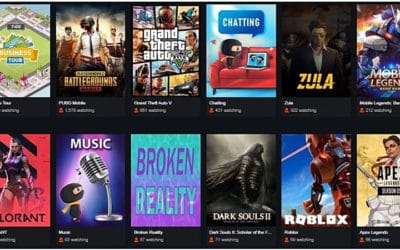
On Thursday June 5th, I attended Crowdsourcing Week’s Brussels summit (which ran until Friday June 6th included, but I didn’t stay until then). Organized in Vilvoorde, a couple of miles outside Brussels, the event gathered crowdsourcing professionals, academics, consultants and innovation-interested managers alike. Here’s a brief wrap-up of the talks given during the day.
The morning: crowdfunding presentations
–
#cswbrussels opening keynote by @lplus pic.twitter.com/YwtI7M1qzZ
— Yannig Roth (@Yannigroth) June 5, 2014
Epi Ludvik Nekaj kicked off the day at 9AM in front of a packed aula, in which around 150 people had taken a seat. His presentation “Crowds economy & people-led innovation, a win-win for your organization” broadly introduced the delegates to crowdsourcing generally and Crowdsourcing Week as a series of events, started in 2013 in Singapore.
–
Kicking off with main sponsor Yvan De Cock #CSWBrussels pic.twitter.com/4MHW2qhXd3
— Bernard Nicolay (@Bernard_Nicolay) June 5, 2014
Then, the opening address was presented by Yvan de Cock, Head of Corporate & Public Bank Belgium at BNP Paribas Fortis, which was the event’s main sponsor. He said that the company was supporting the event to stay ahead of the innovations that happen “out there,” that they are aware that there is a larger societal trend that should not be missed by any corporation, and I guess the bank was especially interested in crowdfunding. The whole morning was dedicated to the latter.
–
You can view slides of @seanmoffit’s keynote here: 2014 Global #Crowdsourcing Pulsecheck http://t.co/26pxqSyU3I #CSWBrussels #slideshare
— Crowdsourcing Week (@CrowdWeek) June 5, 2014
But before diving into crowdfunding, Wikibrands’ Sean Moffitt presented the results of a survey conducted last year (in which I participated as eYeka Research Fellow), called the 2014 Global Crowdsourcing Pulsecheck (this links to the results presentation on Slideshare). The above displayed statistic comes from another Nielsen study, but the 2014 Global Crowdsourcing Pulsecheck’s results where also very interesting: Experts believe that Finance & Banking will be the one most disrupted industry disrupted by the crowd (slide 35), legal is the #1 barrier for the development of crowdsourcing in the future (slide 45) and the number one “stormy cloud ahead” will be management of IP issues (slide 49).
–
How @myrocki allows to shape their last 20% of their product – the top 10 list #CSWBrussels pic.twitter.com/8wWUo2JoD2
— Sean Moffitt (@SeanMoffitt) June 5, 2014
The first practitioner presentation of the morning was that of Nick N.M. Yap, an entrepreneur who founded several companies including Rocki, a device to stream music on conventional unconnected hi-fi systems, for which he successfully turned to the crowd for funding. His talk was about the fact that beyond money, a crowd of funders can also provide fabulous ideas to improve the funded product or expand its functionalities. What you can see above are some of the suggestions he received from backers to improve the Rocki that he initially posted on the platform. I also liked the fact that he underlined the importance of media, communication and PR for the success of crowdfunding campaigns.
–
#CSWBrussels going LIVE for #MMI #crowdfunding #startups #tech (at Living Tomorrow) [pic] — https://t.co/HyxKTkkMGi
— Epi Ludvik Nekaj (@LPlus) June 5, 2014
This image shows José Zurstrassen, a successful VC who recently founded MyMicroInvest, a hybrid type of fund which combines crowdfunding and traditional investment (MyMicroInvest was also a “Friend” organization of Crowdsourcing Week Brussels). José came to the event with two start-up founders (Gill Ruidant from 2Houses and Steven Spillebeen from Earnieland) to allow them to pitch live in front of the audience and allow spectators to invest live in their start-ups via MyMicroInvest. It’s a very smart idea, which took José Zurstrassen more than 2 years to get approved by Belgian financial authorities. Now that it’s on track, I feel that his platform has a bright future.
–
Listening to @Apache_be-pitch #CSWBrussels (at @LivingTomorrow) https://t.co/TyhmGlXPbX pic.twitter.com/ctDlZOnxcA
— Cain Ransbottyn (@ransbottyn) June 5, 2014
The above picture was taken on a Google Glass (check the tweeter’s profile picture). It shows Karl van den Broek, chief editor of the crowdsourced news site Apache.be (“Media Partner” of Crowdsourcing Week Brussels), pitching to the audience in a talk called “Breaking News: The news is broke. Fix it!” He was pitching because the site is looking for 1,000,000€ in investments, partly from the crowd, to invest in the website. He interestingly highlighted that journalism has a long history in crowdfunding, because the subscription model is a kind of crowdfunding. I think that’s just semantics, but his presentation was full of great pieces of information.
–
EU key #crowdfunding challenge – lack of transparency #cswbrussels pic.twitter.com/By7lPLRzuE
— Flemming Gammelgaard (@flemmingbg) June 5, 2014
Koen Panis, lawyer at Loyens & Loeff (a “Supporting Organization” of Crowdsourcing Week Brussels), spoke about “Crowdfunding & the law: Old wine in new barrels.” He drew parallels between corporate investment law and crowdfunding, explaining how legally, crowdfunding can be compared to cooperative investments in Belgium. The expertise of a lawyer is always important for people seeking to leverage this form of financing, and I’m sure many people in the room took the chance to ask Koen a couple of specific questions after his talk.
–
Crowdfunder @aburgot explains that legally, most platforms are SELLING not backing or supporting #cswbrussels pic.twitter.com/XFWxUTLfTy
— Yannig Roth (@Yannigroth) June 5, 2014
One of the forms of crowdfunding is reward-based crowdfunding, where funders get gifts or other types of rewards in exchenge for their money (other forms are equity-based and lending-based crowdfunding). Arnaud Burgot, CEO of Paris-based platform Ulule, gave a thought-provoking presentation about the fact that, in this form of crowdfunding, the exchange of money for goods is legally considered a SALE, not a DONATION. This contrasts with the terms used by the platforms like “Back this project” or “Support this initiative” where, if we look at it from a legal perspective, it should say “Buy this reward.” Of course platforms don’t do that as it would probably be detrimental to crowd engagement, but it was great seeing the many legal implications that reward-based crowdfunding can have for project creators.
–
The new crowd investment paradigm #cswbrussels @dazwest pic.twitter.com/dphHerJsBJ
— Flemming Gammelgaard (@flemmingbg) June 5, 2014
Darren Westlake, CEO of CrowdCube (an equity-based crowdfunding platform launched in 2011), presented “What investment portfolios will look like in the next decade.” He basically explained that crowdfunding now allows the “man on the street” to invest in a variety of projects which were previously reserved to an elite as the entry ticket was very high. He also talked about a forthcoming feature of its platform, an API which will allow people to post projects on CrowdCube and to have their projects shared by aggregator platforms which start to emerge today.
–
Panel session on crowdfunding #CSWBrussels pic.twitter.com/BNSPjSWfIv
— ..:: ReDZuaN ::.. (@iamredzuan) June 5, 2014
The morning was closed by a panel about crowdfunding, where a discussion started about the different motivations of reward-based vs. equity-based crowdfunding participants. Do the former participate for more altruistic reasons than the latter? Are people who aquire equity in companies more motivated by money than others? An interesting discussion took place, which did not lead to a definitive agreement. The chaiman the Belgian Financial Services and Market Authorities, Jean-Paul Servais (left on the photo), concluded this panel by explaining that a “balanced” regulation would be needed to see a healthy development of crowdfunding in the next years.
–
The afternoon: crowdsourcing for marketing and innovation
–
Who’s the crowd? #cswbrussels @shelleykuipers pic.twitter.com/XzXaNF62GD
— Flemming Gammelgaard (@flemmingbg) June 5, 2014
To kick things off, Shelley Kuipers, the CEO of Chaordix (a “Supporting Organization” of Crowdsourcing Week Brussels), talked about the “7 habits of brand participation.” Chaordix thinks that that participation is the new brand, and I fully agree with that; attracting passionate and creative consumers to their brands will be companies’ competitive advantages in the future (if we take for granted that they can transform this engagement into value). The 7 rules that Shelley stated: (1) Find your crowd, (2) Engage your audience, (3) Create community leadership, (4) Keep them participating, (5) Introduce them to others, (6) Lead the crowd and (7) Be committed over time.
–
99designs’ @SihamNora about using crowdsourcing internally to improve its platform #cswbrussels pic.twitter.com/IAlWA4Lmcb
— Yannig Roth (@Yannigroth) June 5, 2014
99designs’ Marketing Manager for Europe, Siham Belouadheh, talked about “Seeding a culture of innovation through internal & external collaboration.” She explained that, at 99designs, quarterly Hack Weeks get the company’s collaborators together to invent new features for the site and improve overall user experience, as well as the company’s positioning and/or bottom line. The launch of 99nonprofits, for example, is the result from one of the past Hack Weeks.
–
Markets became conversations! The big shift! Wim Soens from the belgian @CogniStreamer at #CSWBrussels pic.twitter.com/WSowB64aON
— dirk lievens (@dirklievens25) June 5, 2014
CogniStreamer’s Wim Soens talked about “Companies, communities & collaboration: Powering enterprise innovation ecosystems.” Basically he talked about the impact of the social and participative web on innovation (see above) and the iterative nature of innovation today, because access to crowds is so much easier and cheaper than before. Then, he presented a case study about a collaborative innovation initiative organized for P&G about a low-income innovation problem targeting Mexico. A 6-month process organized by CogniStreamer (a “Supporting Organization” of Crowdsourcing Week Brussels) involved various external stakeholders, such as experts and students, and helped the company innovate better, he said. We would have love to find out more, but as often, confidentiality matters hindered him to elaborate a lot.
–
Lovely quote, by @eyeka at @cswbrussels pic.twitter.com/ZPimVJfNi0
— Kevin de Caluwé (@kevindecaluwe) June 5, 2014
The last presentation about crowd creativity was Nicolas Borgis’ “How naïve experts can help generate breakthroughs.” The VP Product of eYeka explained that unrelevant, non-representative yet very creative individuals can be very useful for companies and brands that are stuck with an innovation and/or communication problem. After briefly presenting eYeka, he talked about the way crowdsourcing has helped brands like Oral-B, Volvic, Mini Oreo and Unilever find fresh ideas to unlock market opportunities globally or locally. You can find his full presentation here.
–
Closing: variety of crowd-related phenomena
–
“In the near future, creativity will be the new superpower!” @deeeep talks #3dprinting at #CSWBrussels
— Crowdsourcing Week (@CrowdWeek) June 5, 2014
Deepak Mehta from 3DEE (a “Supporting Organization” of Crowdsourcing Week Brussels) presented the broad trend of decentralized hardware production through 3D-printing technology. “3D printing: The impact of personal fabrication on business models” was the title of his presentation, which broadly addressed the changing paradigm shift caused by decentralized means of production. It was not very clear to me what 3DEE exactly did, I think it is a consulting firm of Deepak’s, but I might be wrong. The presentation was a refreshing talk about an original, yet not unknown, topic.
–
@brunopellegrini ‘s speech about video #crowdsourcing at #CSWBrussels @CrowdWeek pic.twitter.com/sB0W3fWX9D
— Charlotte Cayré (@_charlottecayre) June 5, 2014
Bruno Pellegrini, CEO of crowdsourced video production platform Userfarm, made a rather long presentation about “Managing a global digital community for creativity & content creation.” The first part was a rather classical presentation of his company, which unfortunately left little time for the most interesting second part, in which he explained some key learnings about managing creative crowds. The Italian company connects filmmakers and brands through a variety of models – not all open to all – and also sells its technology (and userbase) to brands with its “video factory”). I felt that Userfarm mostly emphasized a cost-advantage of crowdsourcing, which is definitely a proven benefit of it!
–
How the @EU_Commission sees the collaborative economy #sharingeconomy #CSWBrussels pic.twitter.com/VqeewarZ2D
— Euro Freelancers (@EuroFreelancers) June 5, 2014
The last presentation was Domenico Rossetti’s “From proprietas to usus: Towards a genuine European way of life.” After outlining the current social, economical and environmental challenged, he explained how the collaborative economy is taking over consumers’ and companies’ habits. He explained that his 10-year old son told him that he wouldn’t need to own a bicycle when he has 24 of them standing in front of the house – talking about the city’s bike-sharing system – illustrating how the new generation prefers usage over ownership. I liked his conclusion about the state of work in a society where everything would be crowd-sourced, and where sharing platforms have quasi-monopolies. Food for thought and debate.
–
power of the #sharingeconomy is through decentralization and people doing what they love. –@Maarten_Kooiman #CSWBrussels
— briana green (@gbriana) June 5, 2014
Talking about debate, the day was being concluded by a (short) round table about “The promises, potentials and problems of the sharing economy,” animated by the European Sharing Economy Coalition’s Marco Torregrossa. Panelists Domenico Rossetti, but also David Vuylsteke from crowdsourced delivery platform PiggyBee and Maarten Kooiman from car-sharing platform Tapazz talked about the need for a common regulation to have a win-win situation between platforms and consumers. The benefits of cooperative management of crowdsourcing platforms was raised, and a strong point was made to underline the need for decentralized systems, which would avoid some platforms (think about Airbnb or Uber) to have monopolies that could be harmfull to users (on both sides) and countries.
–
My opinion about the event
–
I think it was a great event to discuss crowdfunding and crowdsourcing. The room was full throughout the day, the audience was engaged, and the speakers were very interesting. It is striking that the topics are evolving, for example with more and more importance being given to crowdfunding. I guess that was also a consequence of Crowdsourcing Week Brussels being sponsored by BNP Paribas Fortis, of course, but the funding side of crowdsourcing is definitely taking a growing space.
I thought that an interesting shift was also occuring, it’s that the word “crowd” is increasingly used to describe engaged people who gather together online. I even heard something like “A sparsely distributed group of people is not a crowd, it’s a community!” which seems in total contradiction with what we heard a couple of years back, when crowds were just a bunch of disorganized folkd to sollicit occasionaly, while communities were engaged and focused people working on a common purpose.
Amazing how yesterday’s “community” seems to be replaced by “crowd” (and “co-creation” by “crowdsourcing”) today #cswbrussels
— Yannig Roth (@Yannigroth) June 5, 2014
Another thing that struck me is that many speakers explained how the future lies in freelance work and self-employment. While that might be a fundamental trend in todays working world, I feel a little uncomfortable with the fact that we just declare this and take it for granted. I personaly wouldn’t feel comfortable with NOT being employed somewhere, or NOT belonging to one or two institutions providing me an office, paying my salary and giving me work to do. I understand that is a very personal thing, and I do value autonomy a lot, but I just feel it’s not right to project a “everything-crowd” future too.
Last, but not least, here’s a cool video about Day 1 of Crowdsourcing Week Brussels. I mean, more than the video, I think the Crowd Expedition initiative (“a unique research expedition in quest of the real added value of the Collaborative Economy“) is interesting, as its initiator Martijn Arets has already done the same with European brands – writing a book about it. So, watch his video, follow his project, and learn more about crowdsourcing!
–
What did you think about Crowdsourcing Week Brussels?





0 Comments